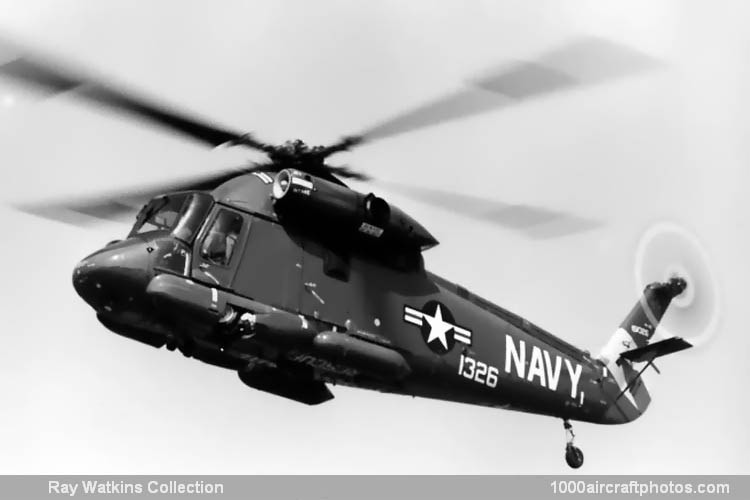01/31/2010. Remarks by Ray Watkins: "For the Model K-20 Kaman reverted to the conventional configuration of a single main rotor and anti-torque tail rotor instead of the twin intermeshing rotor system used all their previous helicopter designs. A competition for a high performance, all-weather utility helicopter for the USN was held in 1956. Kaman won the contest and was awarded a contract for four prototypes and twelve initial production aircraft in November 1957.
The aircraft was given the designation of HU2K-1 Seasprite, which was changed to UH-2A in 1962, and a total of 190 Seasprites were produced. In March 1965 a UH-2 was modified to a twin-engine configuration with the General Electric T58-GE-8B engines mounted each side of the rotor pylon. A contract was signed in November 1965 to produce a more refined installation and the two prototypes were produced as the UH-2C.
To fulfill a rescue mission some early models were modified with a 0.3 in (7.62 mm) Minigun in a nose turret, waist gun positions and armor protection for the crew and designated as the HH-2C. This model also had twin main wheels, four-blade tail rotor, an up-rated transmission and 1,350 hp T58-GE-8F engines. All these changes, except the armament, were applied to other early production aircraft to produce the model UH-2D.
The pictured aircraft was converted to an SH-2F before it was written off on July 15, 1976, while being operated by HSL-33 (Helicopter Antisubmarine Squadron (Light) 33)."
